Evacuations have been ordered in Greece near the capital of Athens as raging wildfires near the popular international tourist destination.
The fast-spreading wildfire has already blazed through several neighborhoods near Athens, prompting Greek officials to ask people to evacuate quickly.
A Fast Moving Fire
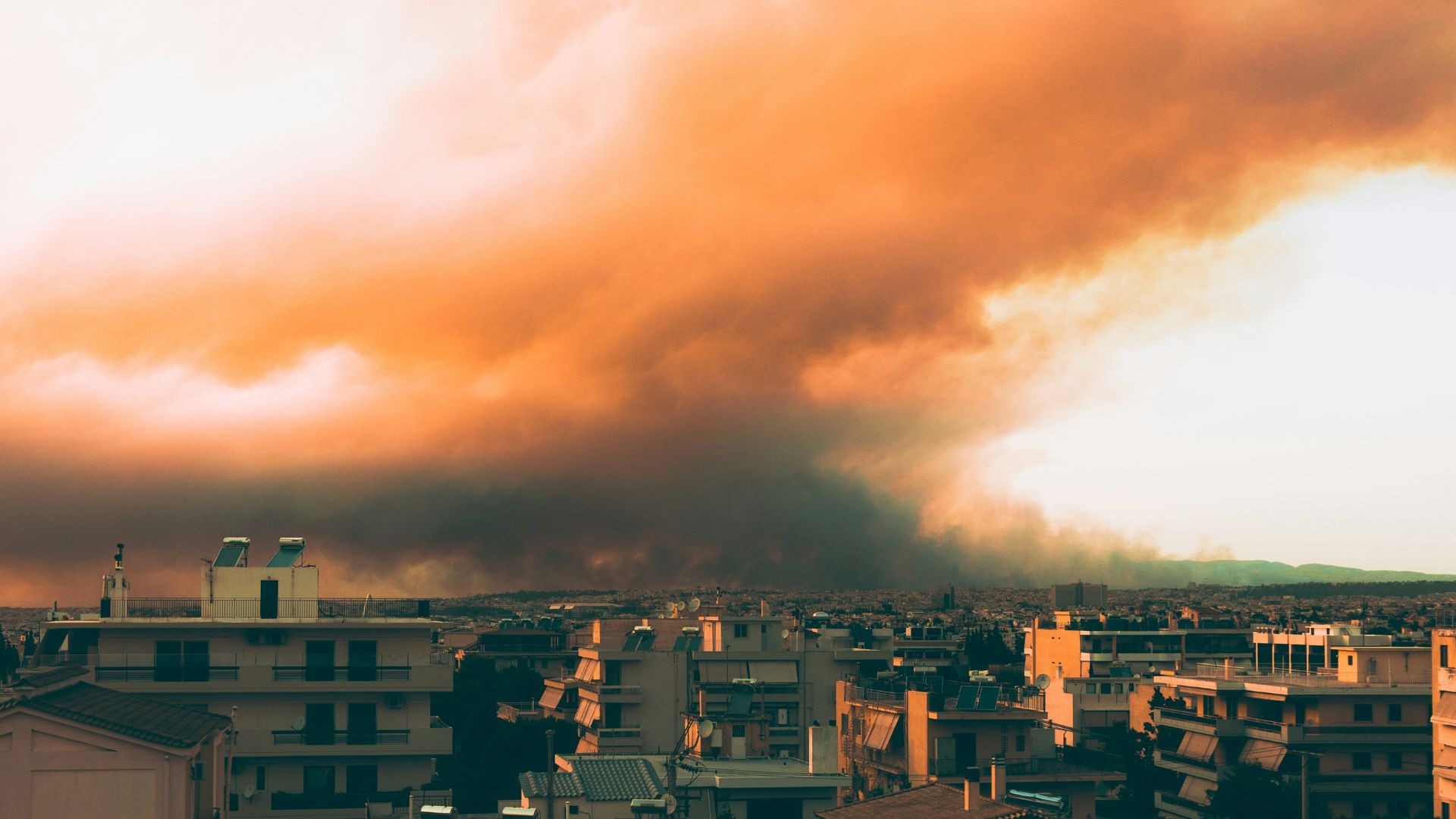
This blaze began on Sunday afternoon in a town named Varnavas, which lies north of Athens. Since the fire started, it has burned through 156 square miles and roared through various towns.
The fire has also turned deadly, as at least one person has died after a burned body was found in a building in the town of Chalandri, which is only 5 miles away from Athens.
Emergency Crews Get to Work

Firefighters and emergency crews have struggled to fight the fire since Sunday, though officials have recently come out to state that their situation was improving.
By Tuesday, more than 700 firefighters had been deployed to fight this blaze. Meanwhile, 199 vehicles and 35 aircraft equipped with water bombing were also attacking this fire.
Other Countries Send Help

Many other countries in the region have sent their own emergency service people and firefighters to try to help combat this quickly spreading fire.
Greek fire officials have stated that France, Czech Republic, Italy, Romania, Serbia and Turkey have all helped.
Evacuations Are Underway
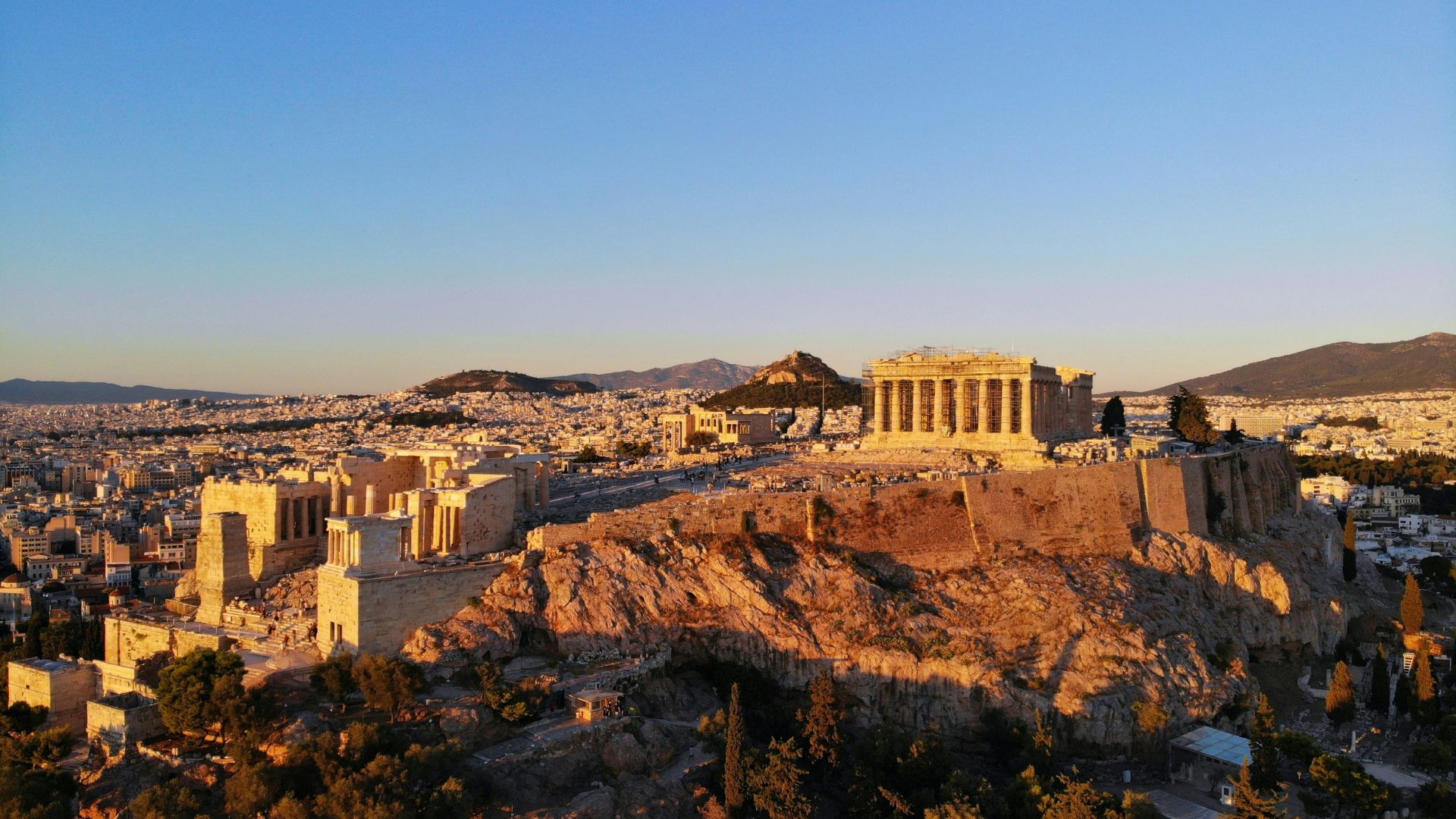
The fire still hasn’t been handled completely — and it is raging out of control and quickly destroying land and homes near Athens.
As a result, Greek officials have publicly ordered evacuations in many areas near Athens. However, many people have chosen to stay behind to try to stop the blaze from destroying their homes and properties.
Why the Fire Is Moving So Quickly
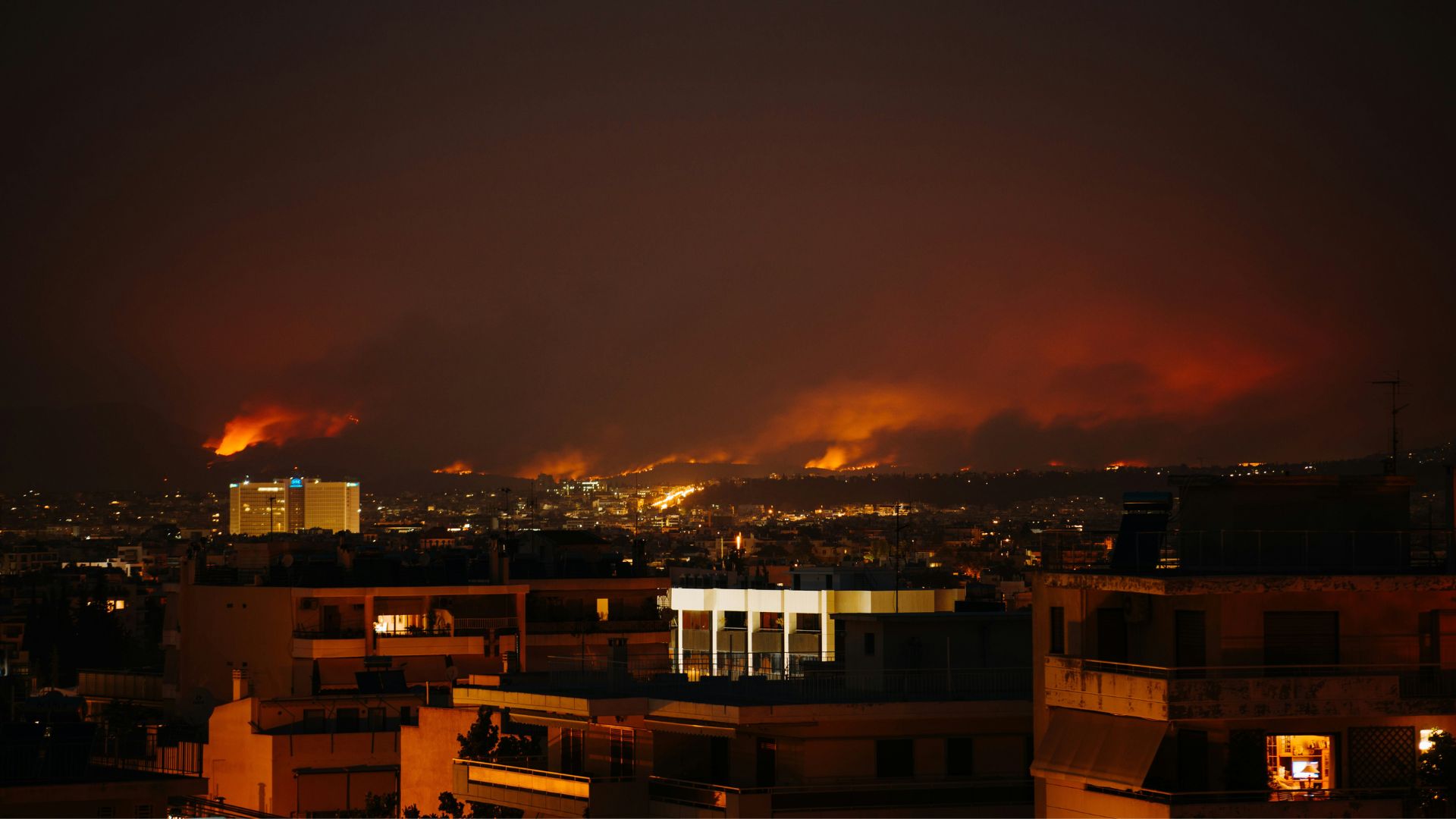
There are many reasons why this fire has moved so quickly in such a short timeframe. According to the country’s climate crisis and civil protection minister, the fire has been encouraged by a prolonged drought and very strong winds.
The fire has also been able to spread because of unburnt forest, which allows it to quickly light up.
The Fire Nears Athens

Many officials have grown increasingly concerned that the quickly moving fire could eventually end up in Athens, especially as it has left nearby towns utterly destroyed.
To make matters worse, the fire has many areas of wooded terrain that it can burn through as it makes its way toward the Greek capital.
Athens Suburbs Evacuated

Officials have asked people to evacuate in many towns on the outskirts of Athens. Firefighters have also stated that the fire seems to be moving quickly toward Penteli, a town only 10 miles northeast of Athens.
Penteli is a town at the foot of Mount Penteli. Around this area lies much-wooded terrain, which could only help the fire grow.
Wildfires Threaten Ancient Buildings
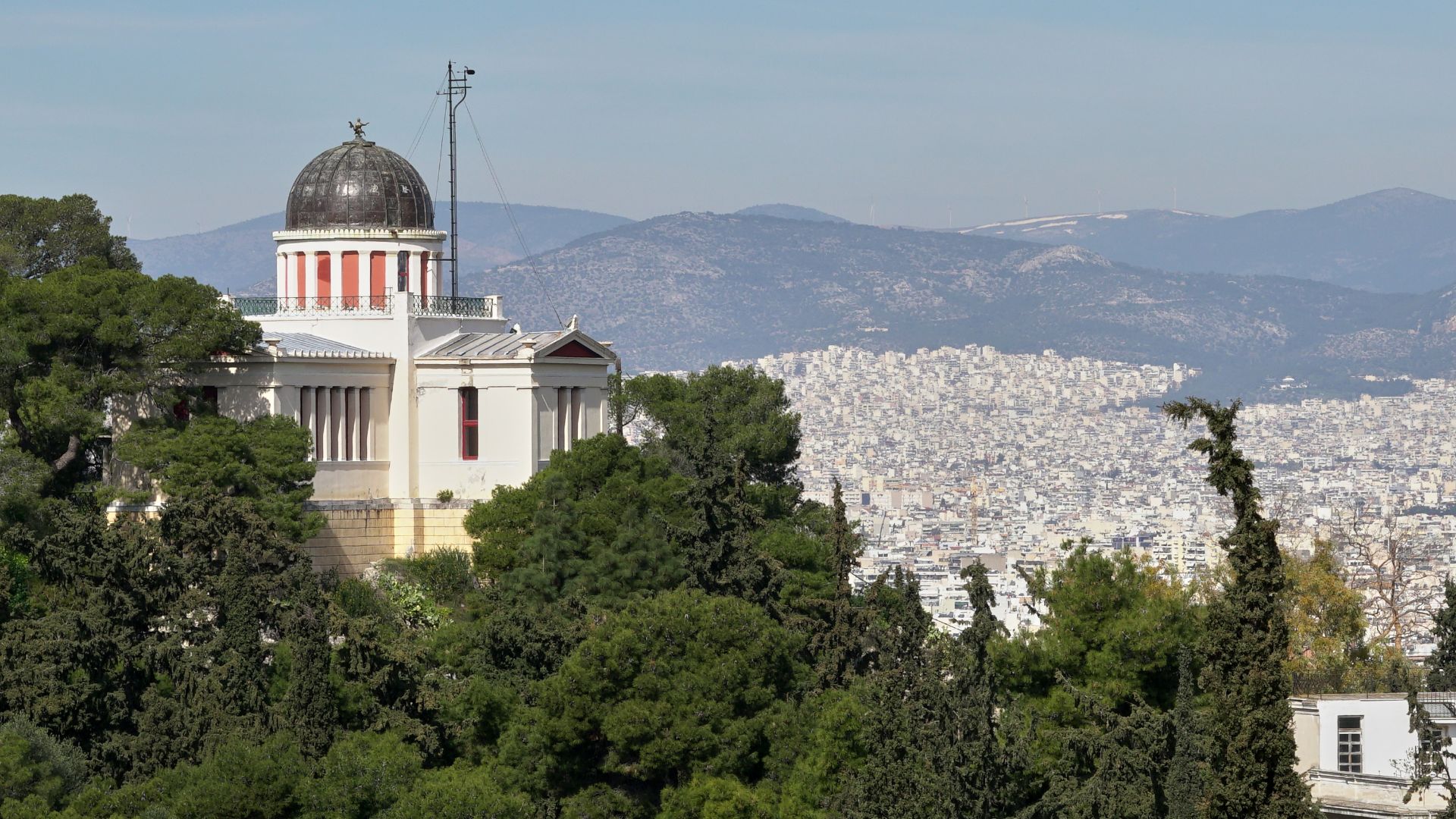
Concern has also risen that this fast-spreading fire may soon begin to threaten various ancient buildings and monuments scattered in and around the ancient city of Athens.
Increasing worries have become founded, as wildfires are currently threatening the National Observatory of Athens’ premises, which was created in 1842.
People and Animals Struggle
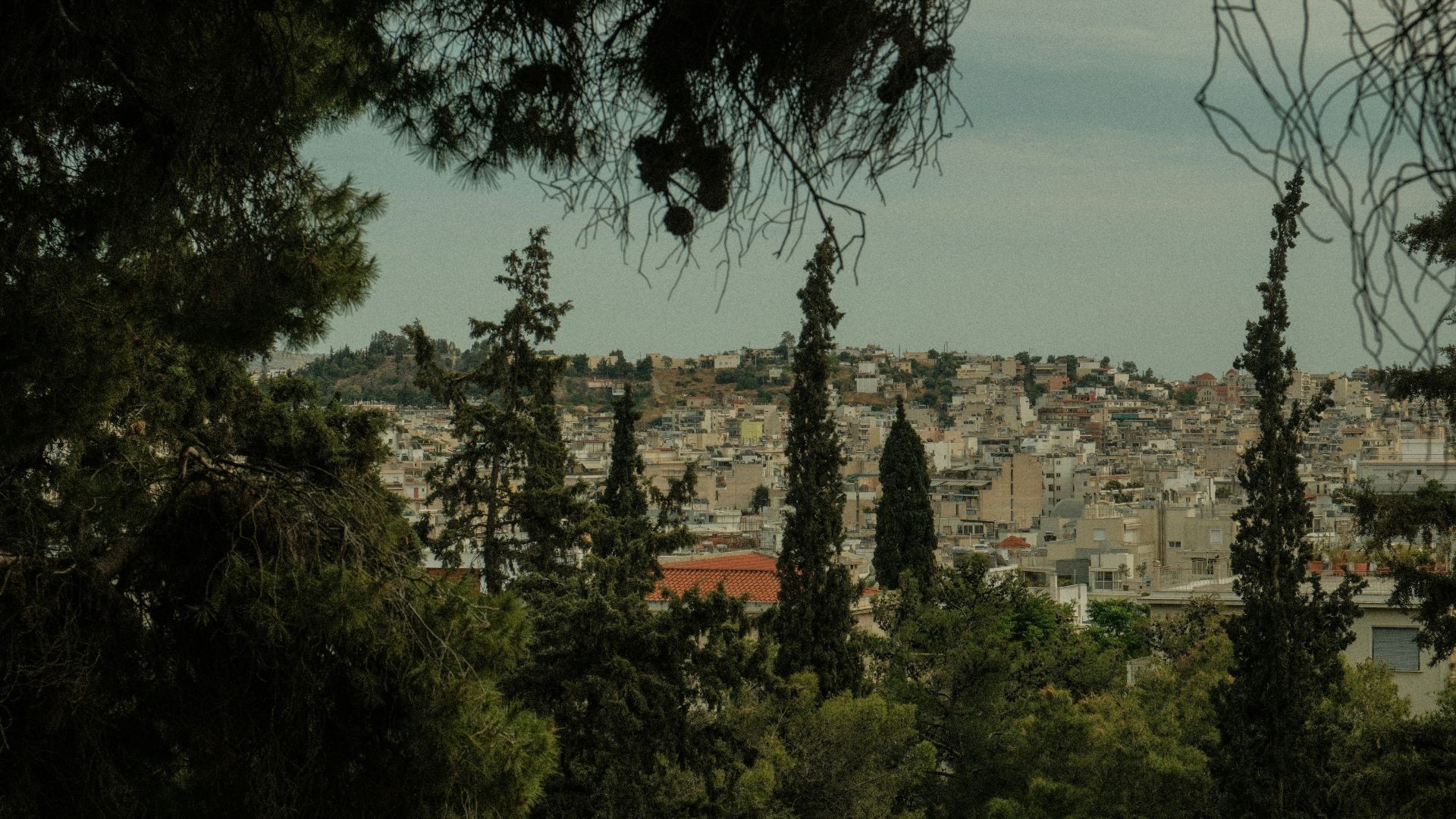
Greek locals have explained the scenes they’ve seen as they’ve struggled to keep their neighborhoods and homes free from the fire.
Many people have had to flee their homes. While doing so, they’ve also seen countless animals from the forested areas struggling to escape these raging wildfires.
Greek’s Difficult Summer

Greek has had an incredibly difficult summer. Earlier this year, much of the country faced very hot days, as heat waves decimated the tourist hotspot.
This led to many tourists going missing — with their bodies eventually being discovered after days of searching — because of this excessive heat. Now, that heat wave has dried out the area and made it ideal for wildfires to blaze out of control.
Record Breaking Temperatures
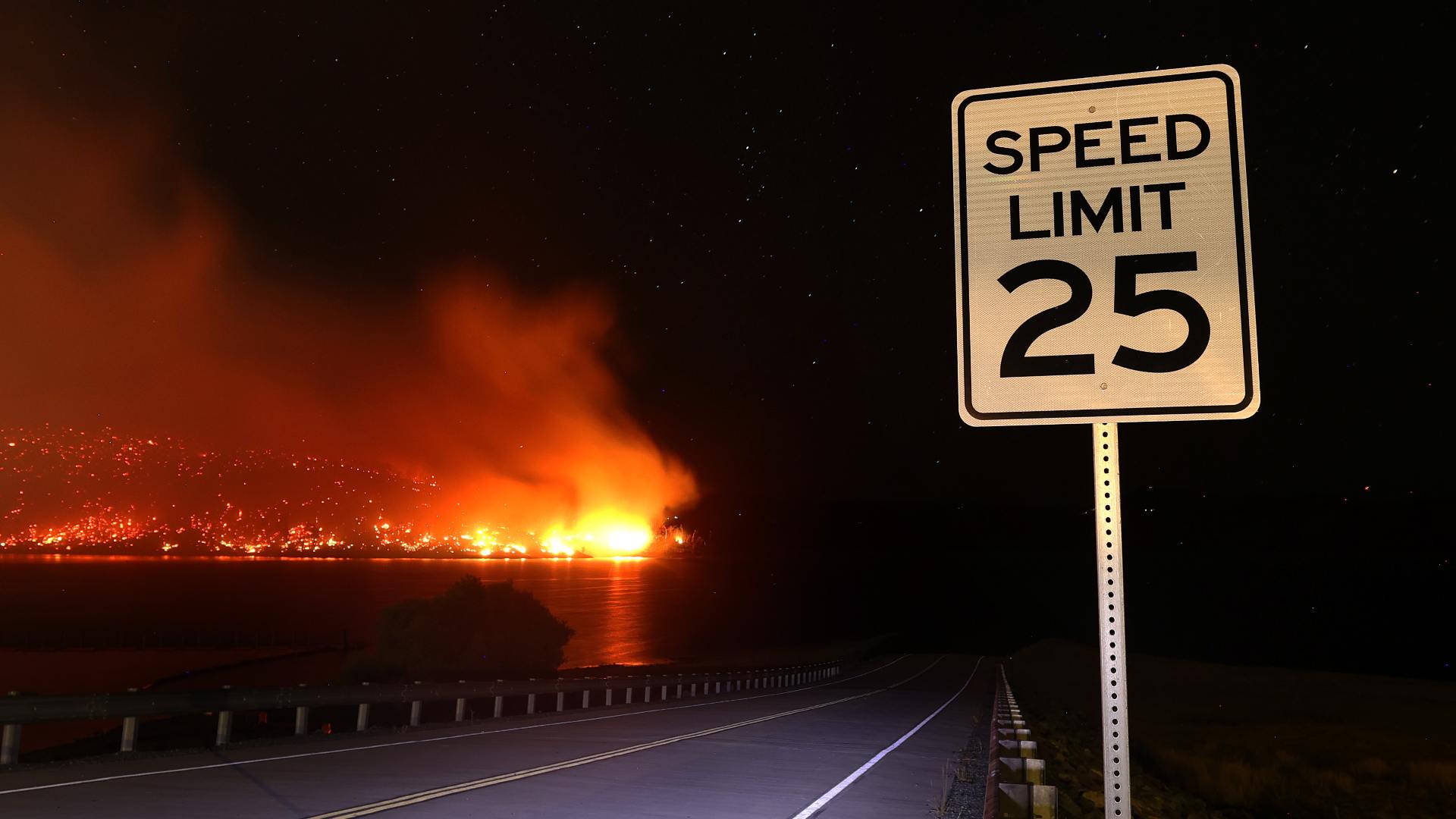
These tragic wildfires come off the heels of Greece experiencing its hottest June and July on record.
Far from being an isolated story, the narrative of a region experiencing record-breaking climate measurements, to then be devastated by some sort of extreme weather event, is becoming an alarmingly common one all around the globe.
California Wildfires
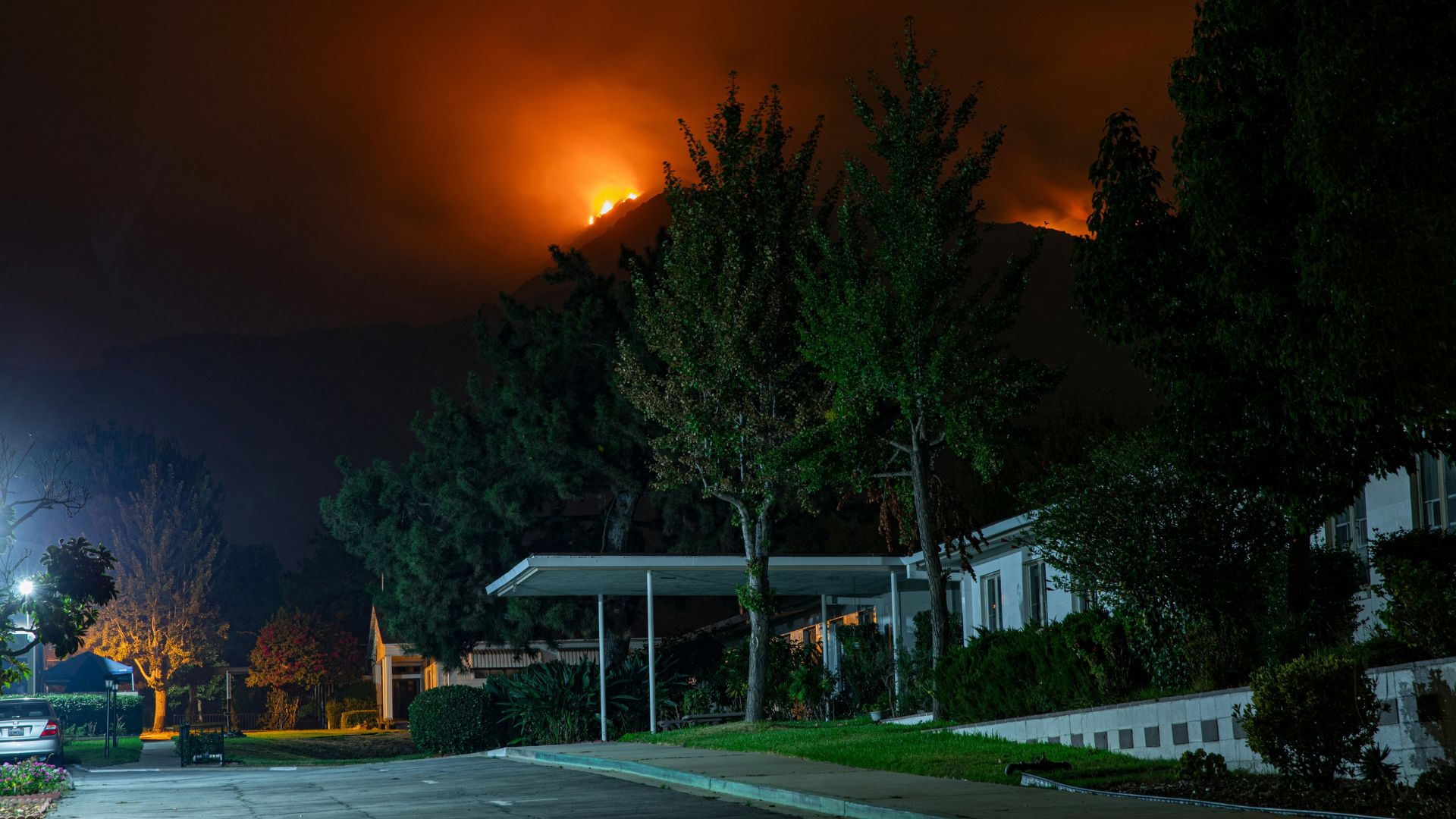
Sticking with a similar sort of tragedy, California was recently ravaged by wildfires — a hazard that is becoming an all too familiar part of living in the Golden State.
A North California fire that burned across just under 4,000 acres recently sadly destroyed 13 homes, damaged a further five and destroyed 13 other minor structures before the danger had passed.
The Thompson Fire
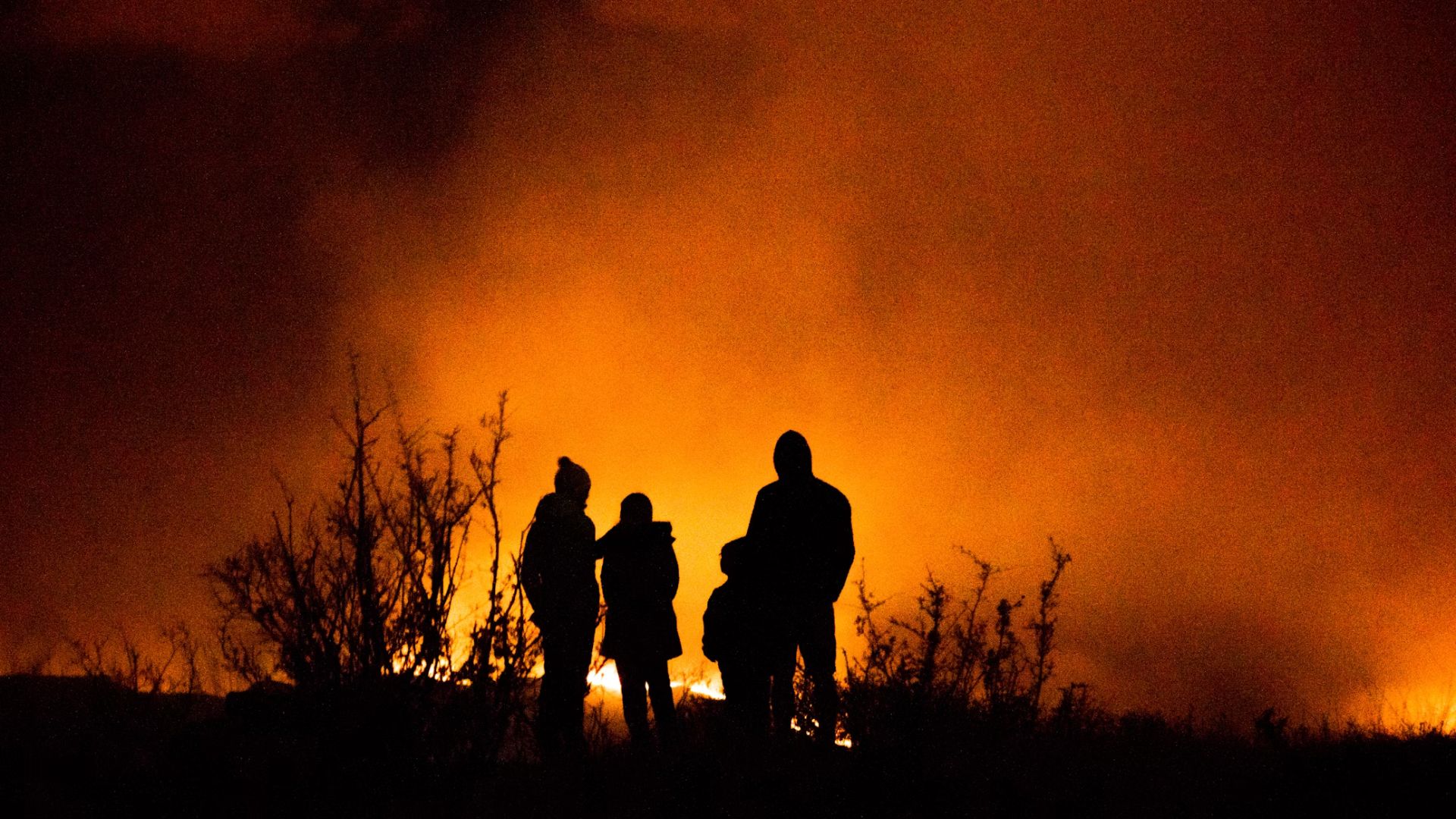
The Thompson Fire ignited in the area of Thompson Flat Cemetery and Cherokee Road. It burnt its way through an area in excess of 3,700 acres before finally being contained.
So severe was the situation that California Gov. Gavin Newsom declared a state of emergency shortly after the fire began, with local emergencies also declared as the fire threatened critical infrastructure.
Evacuation Orders Also Issued
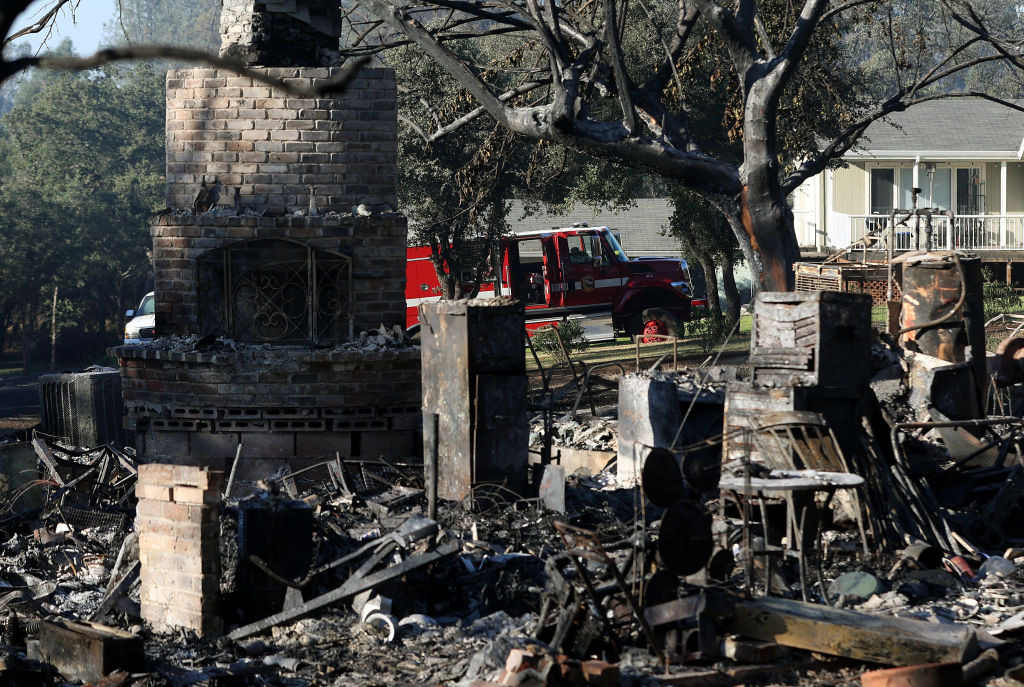
The wildfire in California similarly led to evacuation orders being issued, in a similar vein to the orders issued in and around Athens.
Almost 17,000 people were impacted by mandatory evacuation orders. Infrastructure was also impacted, with Pacific Gas & Electric being forced to de-energize high-voltage powerlines, taking the Hyatt Powerplant offline.
Fourth of July Cancellation

California’s Lake Oroville and the majority of the surrounding parks and recreational areas were closed off due to the fire and made inaccessible to the public. The Thompson Fire took place around Independence Day.
This meant that Californians saw Oroville’s ever popular Fourth of July fireworks show cancelled, as the city enforced a temporary ban on fireworks in the wake of the wildfire.
From One Extreme
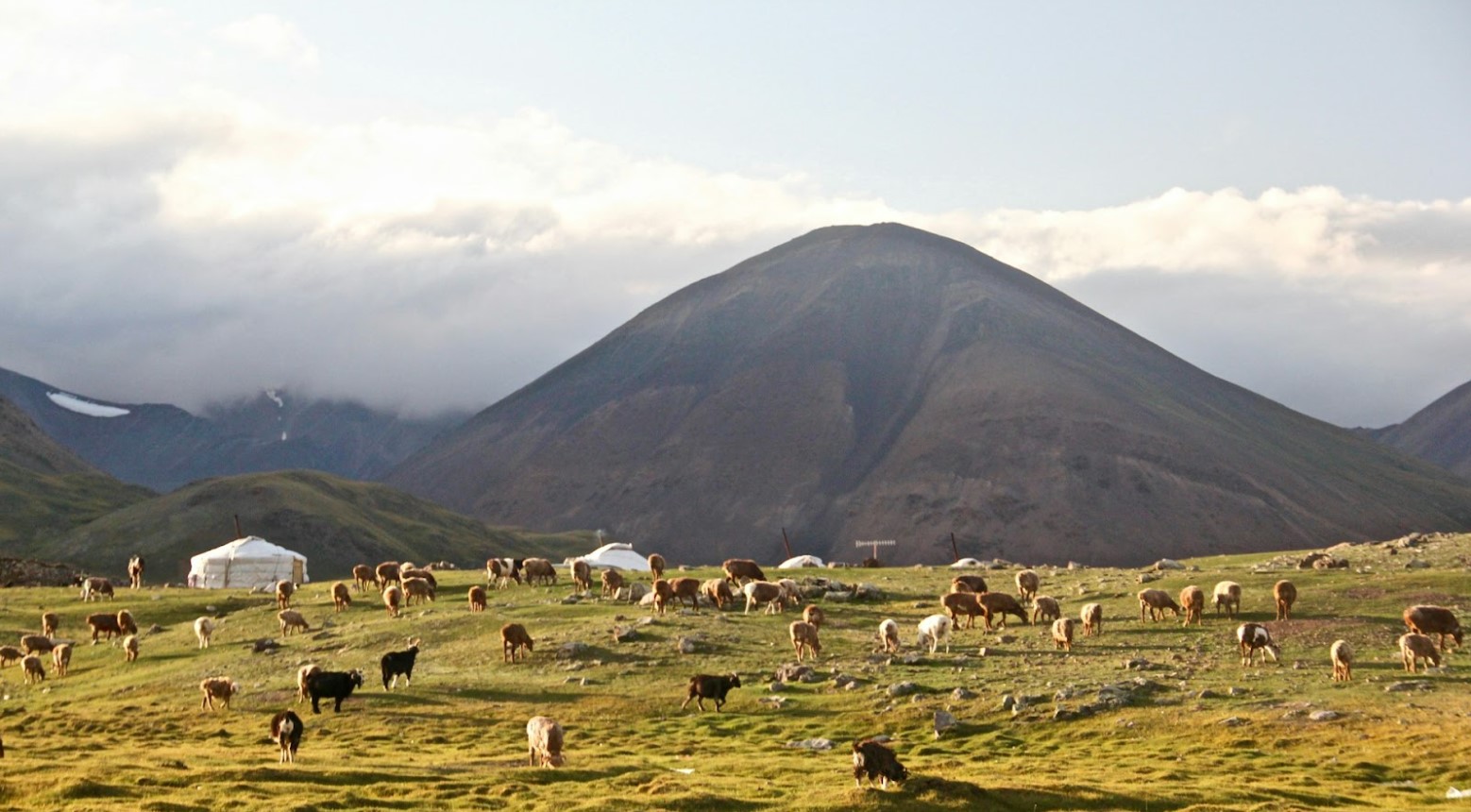
It isn’t just wildfires and issues of extreme heat that are causing massive disasters around the globe.
Mongolia, a nation accustomed to harsh winters, actually experienced the impact of incredibly extreme cold weather conditions that had far reaching consequences on the well-being of its population, both in terms of health and economic stability.
A Dzud
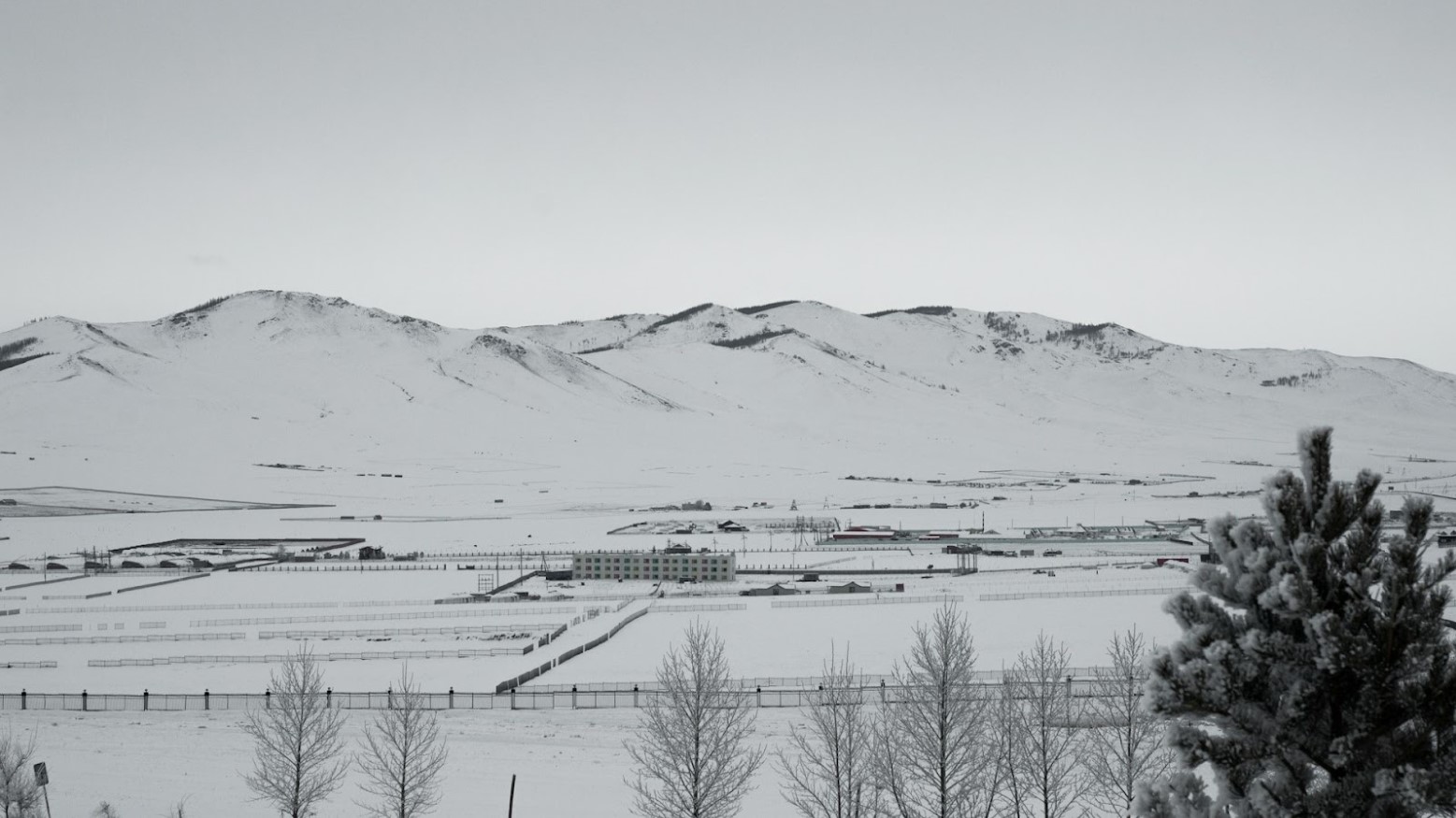
Mongolia experienced what is known as a Dzud. A Dzud is an extreme cold weather event typified by strong winds, snow, ice and a drop in temperature to -22°F or lower.
According to the World Health Organization (WHO), Mongolia experienced the highest snowfall it had seen in 49 years over the winter. At the peak of the Dzud, 90% of Mongolian territory was covered with snow.
A Huge Impact on Livestock

This immense snowfall covered much of the country’s grazing land. With this land frozen over, there was obviously a huge impact on livestock. With no safe grazing areas, animals starved or froze to death.
It’s estimated that this latest barrage of cold weather led to the death of just over 11% of the country’s total livestock.
Economic Devastation

Mongolia dedicates a huge amount of territory to grazing land. Herding and agriculture are a huge economic pillar, so the Dzud had a massive economic impact on the nation.
Many families had lost more than 70% of their livestock — their main source of income. It could take up to a decade for many locals to recover from the devastation of the extreme cold weather.
Why Such Weather Is Concerning
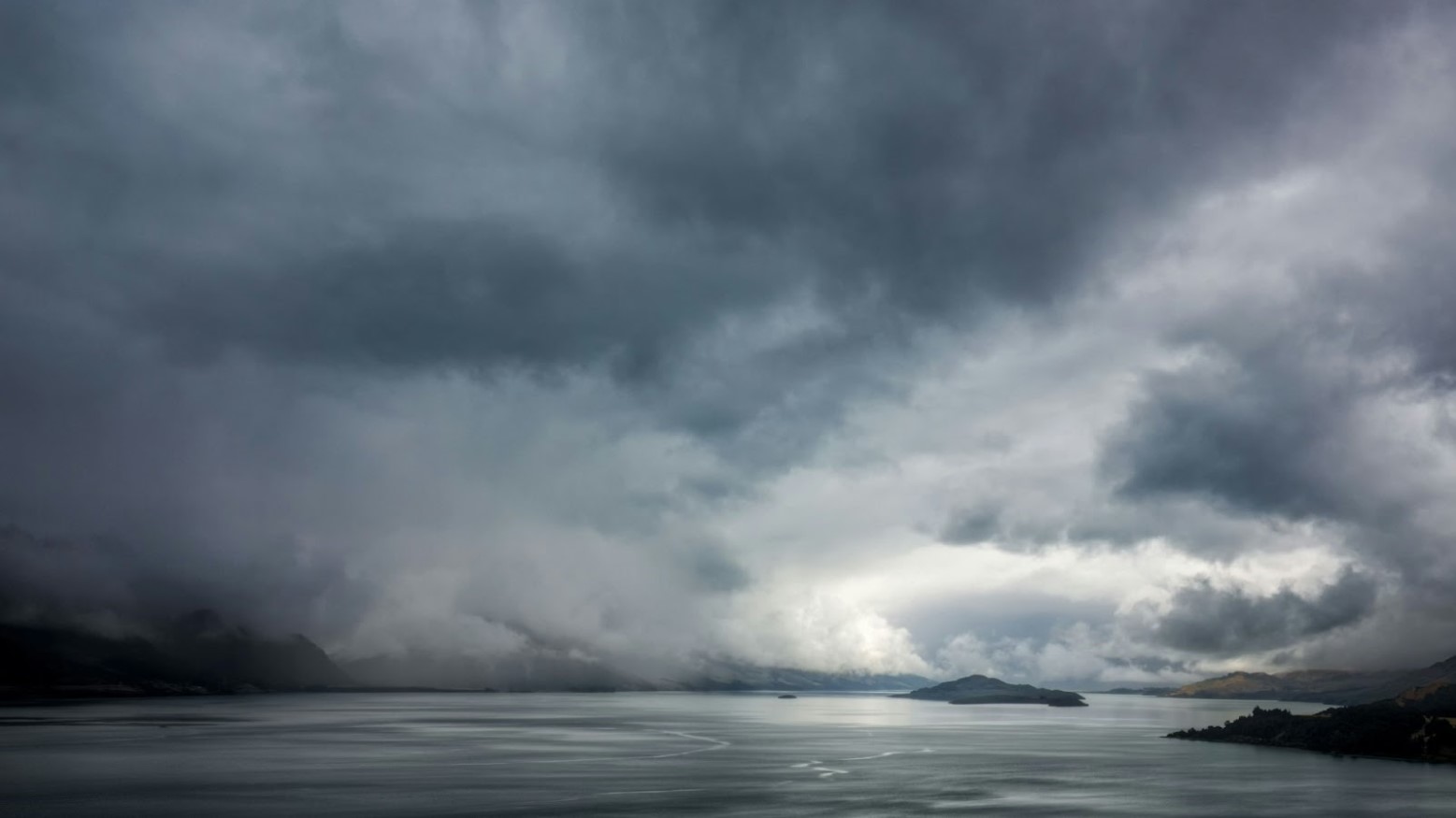
What we seem to be seeing is a pattern of somewhat familiar weather having an unfamiliar toll. Mongolia, for instance, is no stranger to brutal winters, but the sheer magnitude of this snowfall is far beyond what could’ve been predicted or mitigated against.
But this is the second consecutive harsh Dzud experienced by the nation and the fifth in ten years. Similarly, Greece experienced multiple wildfires in 2023. What is concerning is that these extreme, ostensibly abnormal weather events are become worryingly commonplace.
A Global Problem
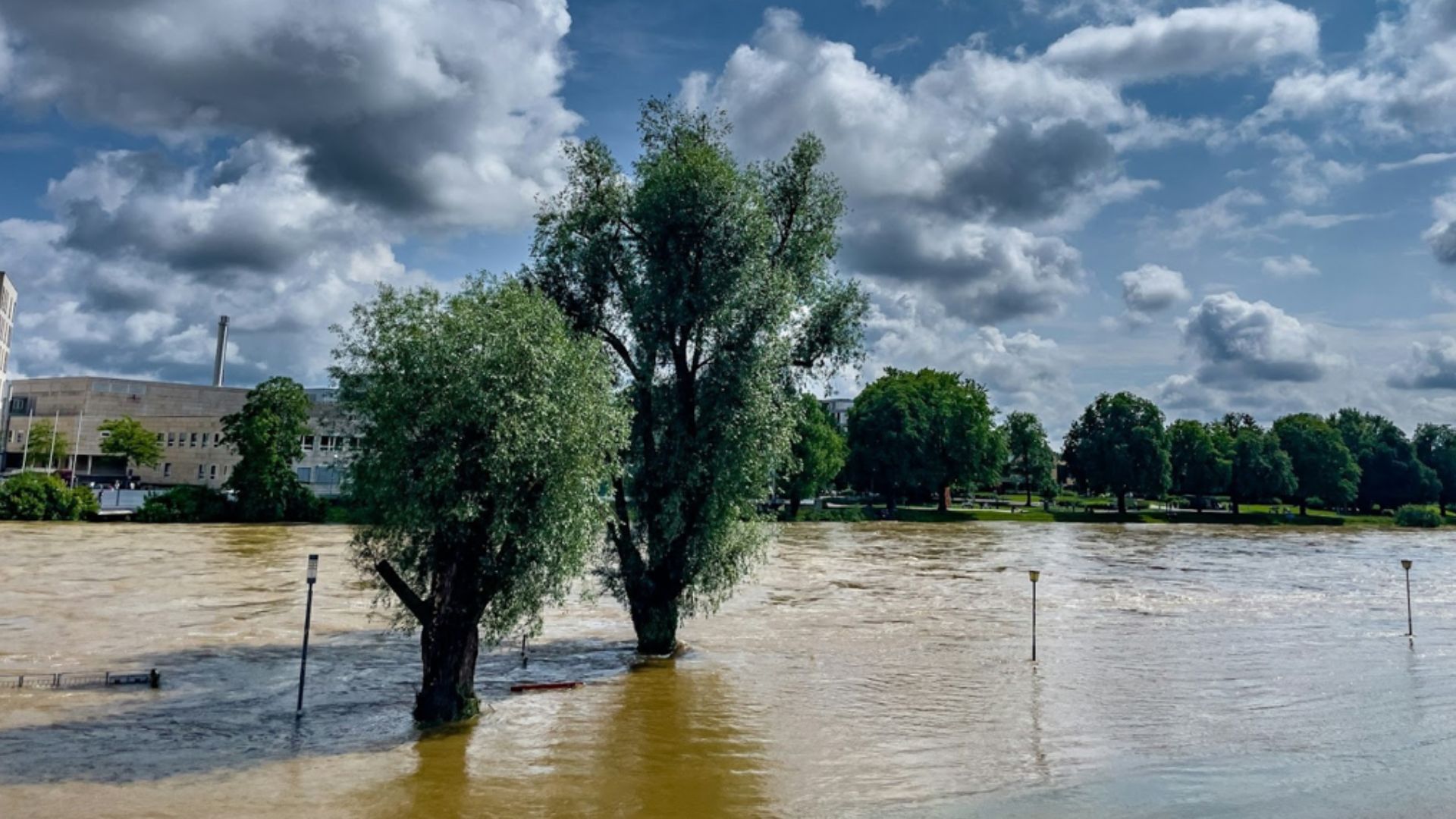
Extreme weather events, and the ensuing devastation they cause, seem to be happening all around the world with a troubling degree of frequency.
India recently experienced a record heat wave, and Germany was battered with heavy flooding. It appears that every few months there are catastrophic weather disruptions being reported somewhere.
A Growing Concern

Devastating disasters like the wildfires in Greece are, troublingly, probably only going to become more commonplace.
The European Environment Agency reports that extreme weather events are only expected to become more frequent and more intense as we feel the effects of climate change. Such events pose a risk to nature, industry, infrastructure and human life wherever they hit.
Fires Amid Climate Change
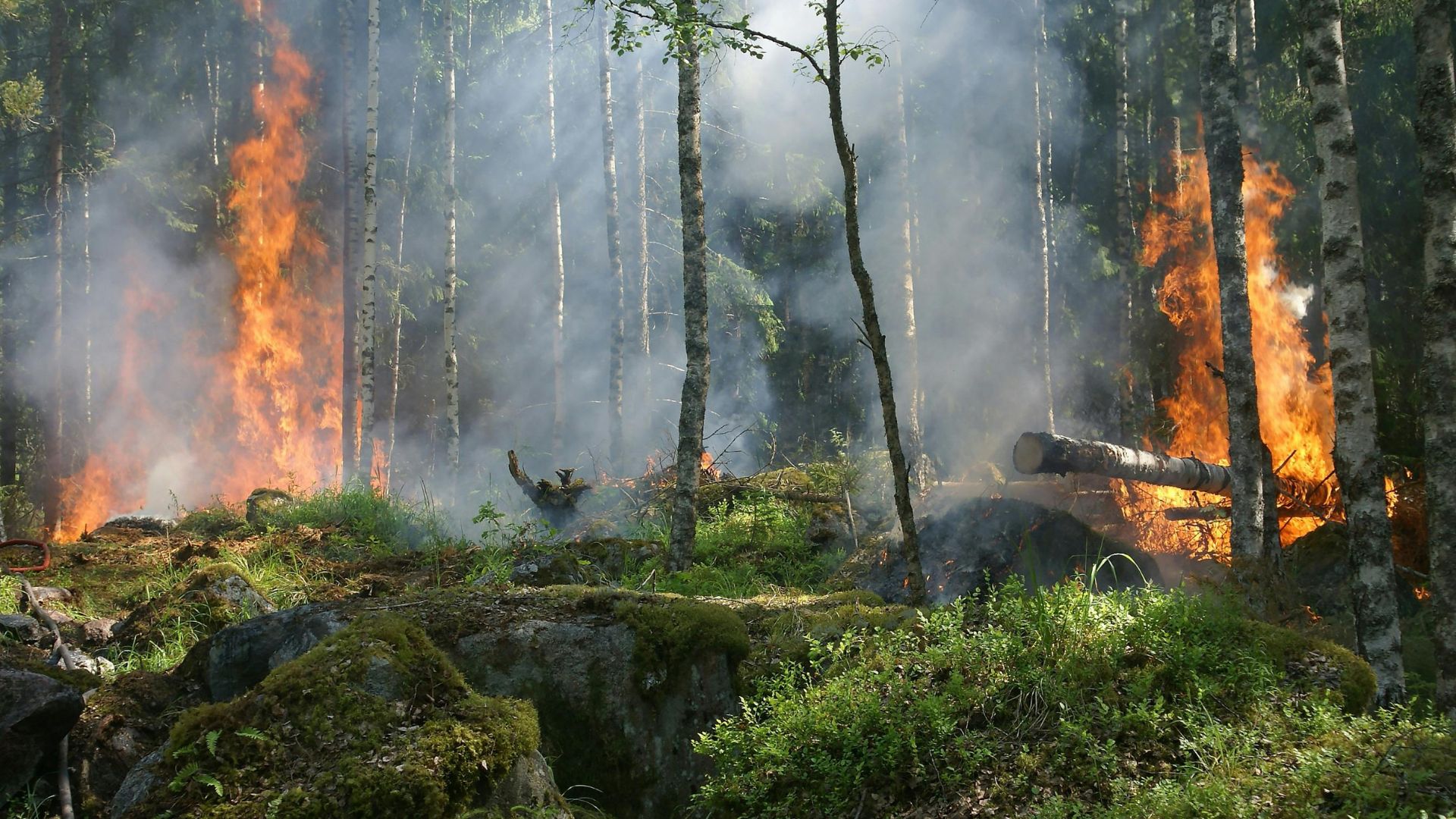
Climate scientists have stated that it is common to see wildfires during the summer in Greece.
However, they have also explained that unusually hot temperatures and dry weather — which has become common because of global warming — have made these fires much fiercer and deadlier than ever before.
